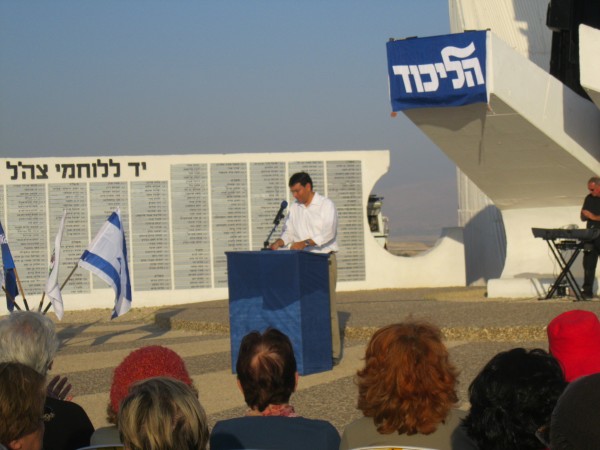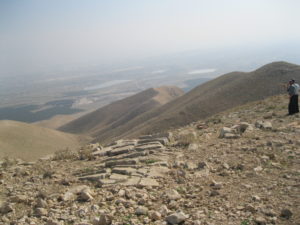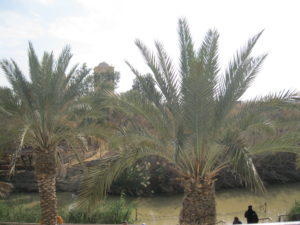
Israel’s Deputy Defense Minister Danny Danon in the Jordan Valley
U.S. Secretary of State John Kerry is expected to face an uphill battle when it comes to finding a solution that is acceptable to both the Israelis and Palestinians over the future of the Jordan Valley. The Palestinian side refuses to accept any kind of Israeli military presence within the Jordan Valley, while Israel adamantly insists that it maintain its military within the Jordan Valley. Kerry is seeking a compromise on this issue, but many Israelis are opposed to his idea for a compromise.
Within the past week, a group of 700 Israelis, sponsored by the World Likud, traveled to the Jordan Valley in order to protest against Kerry’s plan for the Jordan Valley and to reaffirm their belief that the Jordan Valley should be part of Israel. They wanted to stress to Kerry that there is an Israeli consensus not to give up sovereignty in the Jordan Valley, as demonstrated by the fact that Israel Hayom found that 70 percent of Israelis oppose an Israeli withdrawal from the Jordan Valley and that Israel’s Knesset has discussed annexing the territory in recent days. These Israeli protesters were accompanied by Israeli Deputy Defense Minister Danny Danon.
“We came to send a clear message that the Jordan Valley will remain a part of Israel. Here is the border. The US thinks that our border is like Canada and Mexico,” the Israeli Deputy Defense Minister told Jerusalem Online News. However, he stressed that the situation is not like the U.S. claims that it is. “Who will help us if there are rockets? From the Jordan Valley, it is 40 minutes in each direction. We don’t want terror attacks. We want peace, yet we won’t commit suicide for peace.”

The Jordan Valley has many strategic hills
The Israeli Deputy Defense Minister recalled the situation since Israel left Gush Katif, with rockets raining down on Israeli cities such as Sderot and Ashkelon. “There is terrorism,” he stressed. “We won’t leave the Jordan Valley, end of story. No one is ready to give up the Jordan Valley in the Likud. Someone who thinks this way is not in the Likud. We came from all over the place to say that we are here and we are staying.”
Danon is not the only prominent figure within Netanyahu’s government to make this statement. “Security must remain in our hands,” Israeli Intelligence and Strategic Affairs Minister Yuval Steinitz told Israel Radio. “Anyone who proposes a solution in the Jordan Valley by deploying an international force, Palestinian police or technological means…does not understand the Middle East.”
Israeli Prime Minister Benjamin Netanyahu agrees with both Steinitz and Danon. According to the Jerusalem Post, Netanyahu stated: “Our strength is the guarantee for our existence and peace. We do not want an Iranian offshoot in Judea and Samaria. This requires a security border in the Jordan Valley, as Rabin said in his last speech. This is even more relevant today, when Iran’s representatives took over territory we evacuated in Lebanon and Gaza.”

From here, a weapons smuggler can swim across the river and enter the Palestinian state
Israel withdrew from Gaza in 2005, in the hopes of achieving peace. Since then, what used to be Jewish communities have been transformed into rocket launching sites and the Philadelphi Corridor guarding the border with Egypt has been utilized by Hamas and other terror groups as a weapons smuggling route. The Israeli leadership fears that the Jordan Valley would suffer the same fate that the Philadelphi Corridor did.
Recent history has caused many Israelis not to trust the Palestinian leadership to not turn any territory they withdraw from into a terror base. These fears are especially reinforced in the Jordan Valley, which serves as a natural buffer to prevent weapons smuggling if in Israeli hands, but could pose a major security risk if it falls into the hands of terrorists. Due to Abbas’s lack of a popular mandate in an era when the fires of the Arab Spring are igniting across the Middle East, it is a genuine fear to worry about the prospect of the Jordan Valley suffering a similar fate to the Philadelphi Corridor.